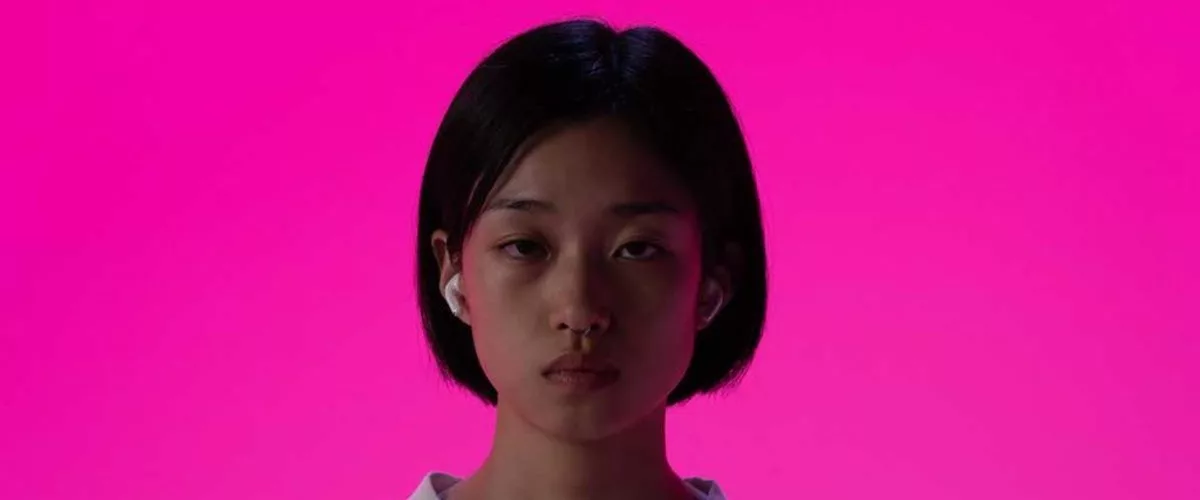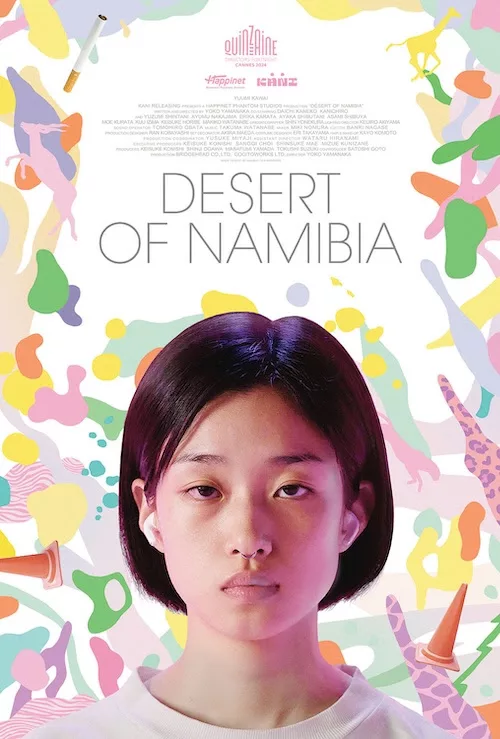We so often use our phones to escape, to procrastinate, to scroll into another realm and tune out the disappointments of our present state. In Yoko Yamanaka’s tumultuous film “Desert of Namibia,” Kana (Yuumi Kawai) uses her phone to find a temporary moment of calm, watching a live stream of camels in the movie’s namesake desert. You could say she’s wandering in a desert of her own making. Unsatisfied with her doting boyfriend, she ends their relationship at the behest of her lover, an equally chaotic spirit she finds much more alluring. When the newly coupled pair move in, the sparks between them cool, and they butt heads more than they hold hands. All this plays out as she’s barely holding down a thankless job at a hair removal spa, visits friends, recovers from a debilitating fall, and seeks help from psychiatrists. For a time, she can tune out the noise and settle in with her phone for a well-earned distraction.
Yoko Yamanaka’s follow-up to her debut, “Amiko,” “Desert of Namibia,” is a drama about a young, mercurial woman who’s figuring out what she wants out of life. Kana vacillates between charming and impulsive, friendly and confrontational to an almost self-destructive degree. At times, she can be a tough character to root for like when she’s purposefully treating her first boyfriend so cruelly, teasing him about misbehaving and when he does, it becomes the reason for their break up, or when she’s barely listening to a friend struggle with the death of one of their classmates, to eavesdrop on another table’s conversation. But in the end, we see she’s just as flawed and frustrated with life as any disaffected young adult. The world they looked forward to on the other side of school never materialized. At 21, Kana already carries an air of world weariness about her, and it can seem like starting fights with her lover is just another distraction from the scarier feeling of uncertainty.
Somehow, Yamanaka finds a balance for her complicated character to navigate her tantrums and tender moments. As both writer and director, Yamanaka follows her character closely, through every messy fight and quiet moments of distraction, even showing how far Kana loses herself in the middle of wrestling with her boyfriend, imagining an out-of-body experience whisking Kana away to an all-pink room with a treadmill or out in the woods with a girl she met. Her mind is not consumed with these fights, far from it—it’s an excuse to check out of her problems. At work, she’s a laser specialist zapping the hair off other women’s bodies. It’s the kind of repetitive job where she can show up and tune out, rehearsing the same script for every motionless customer in her care. Kana is a young woman adrift, angry but unsure of what to do with herself, jumping from boy to boy or from a job to friends in the hopes of finding direction, but there is none.
As Kana, Kawai bottles the character’s tempestuous spirit under the surface of a cool girl, the kind of “devil-may-care” persona who walks around as if they answer to no one and does not worry about what others think of them. It’s almost tough to follow Kana through her mood swings, fluttering like a hummingbird among the flowers, not meant to be captured. She antagonizes one boyfriend, and fully erupts into physical violence against another. She’s a rebel without a cause, raging against the machine and herself. Seeing her lash out or provoke an argument when she seemed disinterested just moments before can feel shocking. However, that could also be part of Kana coming into her own, like a toddler pushing the boundaries to see what they could get away with.
As with Yamanaka’s scrappy debut “Amiko,” which follows a headstrong girl who goes to Tokyo to confront a two-timing boyfriend, there is a spirit of youthful rebellion in “Desert of Namibia.” Kana is not destined to be the kind of woman who would easily bend to gender expectations or cultural norms. She can be caustic and break hearts, but that doesn’t mean she’s unworthy of love and fulfillment. She might be looking for answers in the wrong places, like a partner or a job, but ultimately, finding herself is a journey she will have to go on alone. Those moments of calm, watching a live stream of the Namibian Desert, are a kind of mental break between periods of growth, where she still has much more ground to cover.




















